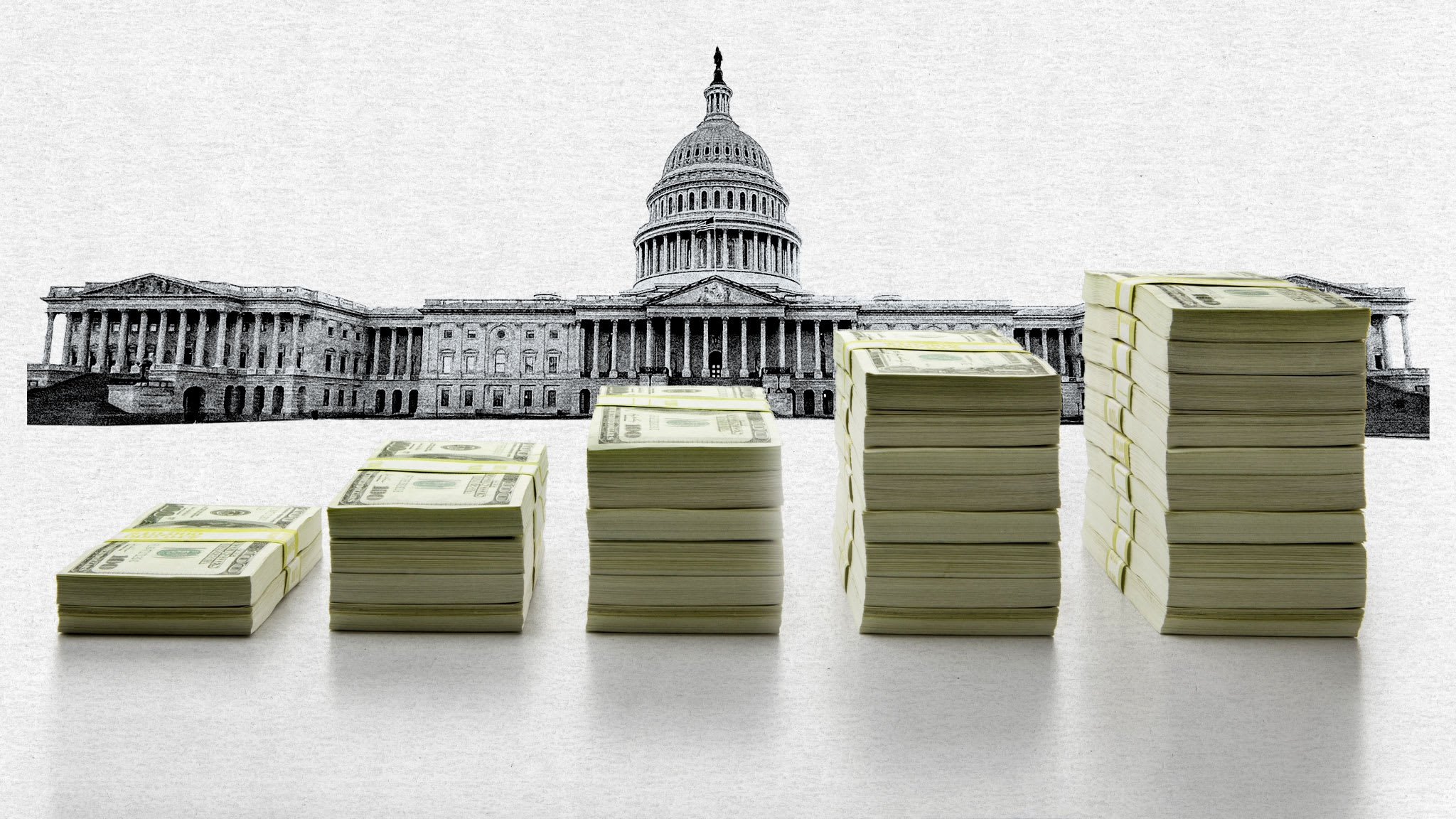Why China won't dump its huge U.S. Treasury bond hoard
Does China have a chain around America's neck because it owns so much U.S. government debt? The world's second-biggest economy also is the world's largest holder of U.S. Treasury bonds. And for years that has troubled a lot of people. They worry that Beijing may dump its vast Treasury holdings to punish the world's biggest economy, the U.S.
But despite the heebie-jeebies over China, seen this week in a brief bond market spasm, it's highly doubtful -- though hardly impossible -- that this rival power would weaponize its Treasury trove to harm America. Periodically, mini-panics erupt over that possibility, although they have so far come to nothing.
The reason: For its own internal financial stability, China needs to hold a lot of Treasurys, regarded as the safest financial asset on earth.
"China likes the depth and transparency of the Treasury market," said Joseph LaVorgna, chief economist for the Americas at Natixis, the French investment bank.
The latest scare stemmed from a Bloomberg News report on Wednesday that Chinese officials has recommended slowing or stopping their purchases of Treasurys. Worst-case scenario: Federal debt would plummet in price, and U.S. interest rates would skyrocket.
The story, which Chinese authorities dubbed "fake news," helped push the yield on the benchmark 10-year Treasury note to 2.55 percent, near its five-year high (which it reached last March, as the world watched the early days of the Trump presidency). The bond's price, which moves in the opposite direction from its yield, recovered a bit Thursday, with the yield at 2.53 percent.
Tensions between Washington and Beijing have been mounting of late, which likely gave the report credence. That's why word that China might rethink its almost $1.2 trillion Treasury stash generated a lot of hand wringing. Erik Bregar, a trader at the Exchange Bank of Canada, wrote: "This is potentially a huge development for global markets as China is well known to be a massive holder of US debt."
The recent flash points in Sino-American relations center on trade, which the Trump administration has re-focused on after a period of trying to enlist the Chinese regime in a campaign to thwart North Korea's nuclear ambitions. President Donald Trump has grown impatient with Beijing's reluctance to adopt a harder line on North Korea.
So now there's talk from the White House of imposing stiff tariffs on steel, solar panels and washing machines. Washington also is eyeing a ban on Chinese state-owned enterprises acquiring American businesses, or on any Chinese company doing deals with U.S. tech firms, for fear of losing America's technological edge.
U.S. trade regulators last week blocked China's Ant Financial from buying U.S. money transfer company MoneyGram International (MGI) over concerns that the Chinese would be able to gain access to Americans' financial data.
Another potential factor that could feed Chinese qualms about Treasurys: The supply of bonds available worldwide is expected to increase in coming years, thus pulling down their prices -- and hurting the value of its $3.1 trillion in foreign assets (just under a third of which is American).
That's because the massive tax cuts that Congress just passed will require a sizable issuance of new government bonds to bring in money needed to pay federal bills. And several large central banks, including the Federal Reserve, have ended their bond-buying programs, designed to keep interest rates extraordinarily low as a post-recession stimulus measure.
All that, the thinking goes, might prompt the Chinese to wonder why they're buying a declining asset. This comes at a time when China is seeking to enhance its influence and prestige on the world stage. It is constructing an ambitious East-West trade route, for instance, aimed at boosting its already formidable presence in international commerce.
Indeed, the tempo of China's U.S. Treasury purchases has slowed over the past year, from $46 billion in 2016 to about half as much last year, noted Scott Kennedy, a China expert at the Center for Strategic and International Studies research group. That said, the Chinese Treasury-buying volume varies due to its needs. One school of thought is that China has all the Treasurys it requires at the moment.
Why does China hold so much in U.S. and other foreign debt? An exporting colossus, it receives a lot of foreign currency, which it needs in turn to buy goods and make investments aboard, broadening its global reach -- and to stabilize its own currency. As a result, in recent years, China's holdings of Treasury bonds have increased rapidly, according to federal government data, expanding 2.5 times from the level a decade ago.
Much of the buildup came as Beijing sought to help offset a strengthening yuan, which threatened its exports by making them more expensive elsewhere. Its international purchases increase the supply of yuan worldwide, thus rendering the denomination cheaper.
Moreover, the U.S. Treasury market is extremely liquid, and the bonds always are in high demand. Atop that, the dollar is the world's reserve currency, meaning it's the means of exchange for an enormous amount of world trade. An overwhelming number of commodities, like oil and metals, are priced in greenbacks. If China sold off a batch of Treasury, it would find plenty of buyers, Natixis' LaVorgna said, so the impact on the U.S. would only be "mildly negative."
"If I had a dollar for every time I heard the Chinese were going to sell off their Treasuries," said Kathy Jones, chief fixed-income strategist at the Schwab Center for Financial Research, "I'd have as much U.S. money as they do."



